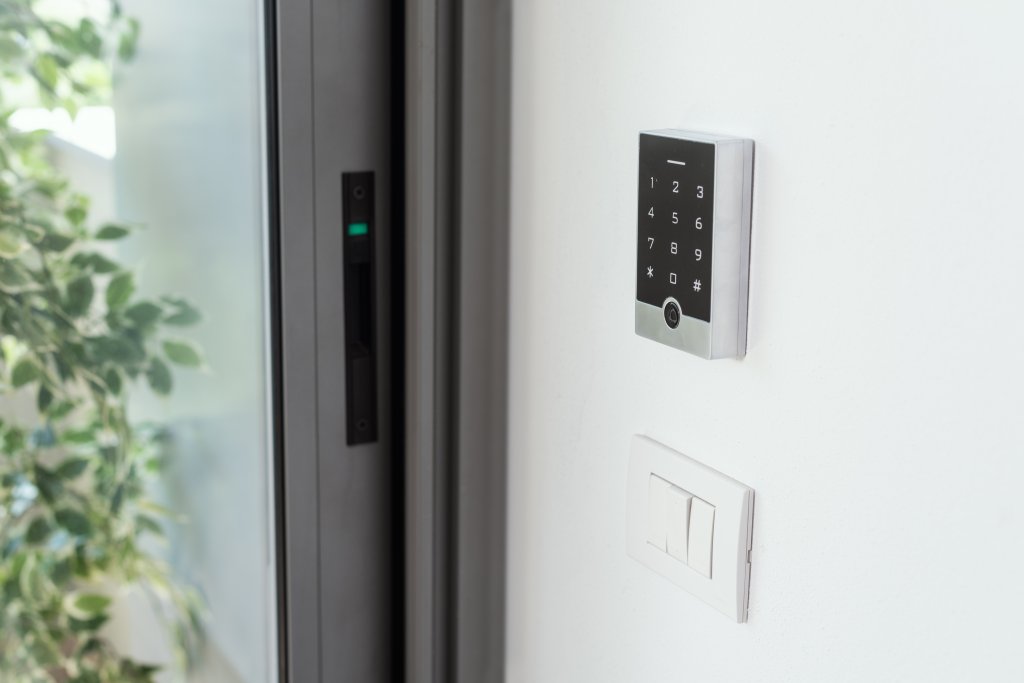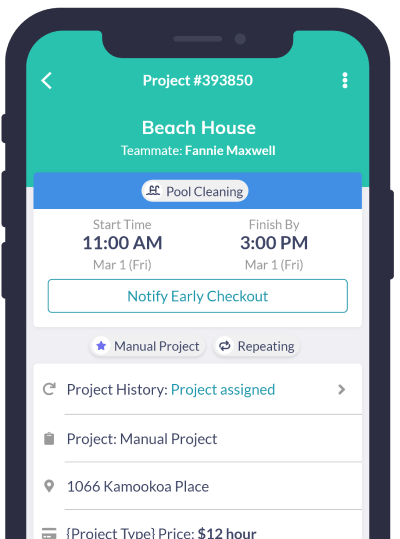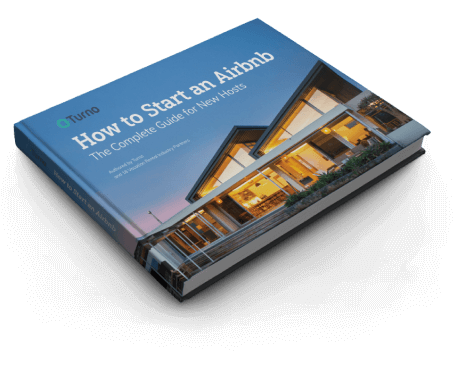What Are Airbnb Smart Locks and Electronic Access Control?
Also known as keyless entry, home automation door locks, or smart access control, electronic access control is the ability to control and manage entry to properties via doors and smart locks (or wired solutions for access points such as heavily trafficked main entrances).
You’ve probably seen a smart lock or may even have one at your own residence. A smart lock is an electromechanical lock that allows you to grant access to open your door without a physical key. That’s where “keyless entry” comes from.
Instead of a key, you use a PIN code or an app on your phone to unlock the door. A smart lock connects to the internet via a wireless protocol like Wi-Fi or Z-Wave and receives instructions to lock or unlock from an authorized device. Alternatively, you may use a key card, which is common in commercial applications like office buildings.
There is a multitude of smart locks on the market. But to invest wisely in this vital piece of hardware and ensure your vacation rental is as efficient and safe as possible, you’ll want to pair that smart lock with the right software.
Put Access Control Software to Work for You
Imagine this scenario for a moment: A potential guest finds your vacation rental through a popular booking platform like Airbnb. She books your place and, upon your approval, she receives all the necessary details about her stay and the property, including an automatically generated access code.
Now, she can efficiently check in without needing a key handoff or your actual presence at the property. Plus, she won’t need to keep track of a key.
What if your guest forgets the code? No worries. You can easily text her a new one, and she can even select one that’s easy for her to remember.
The above is all possible with a front door enabled with a smart lock and cloud-based access control software. RemoteLock software is one example of an advanced access control solution that allows vacation rental owners to grant people access to the right spaces at the right time.
Here’s more on how this modern system can help vacation rental owners:
- Remote Control: Create or revoke access codes from an app on your phone, anywhere.
- Keyless: A modern solution of smart door locks on your property’s doors paired with the right software ensures you never have to deal with lockboxes, lost keys, and lock-outs again.
- Automation: With software like RemoteLock, you also benefit from a host of integrated partners. For example, you can easily link your RemoteLock and Airbnb accounts so that access codes are automatically sent to guests upon approved bookings.
- Customization: Create custom schedules for housekeeping, and track when cleaners enter and exit.
- One App: The guest access control app on your phone or laptop is your point of command to manage access for one door on your property — or hundreds more if you grow.
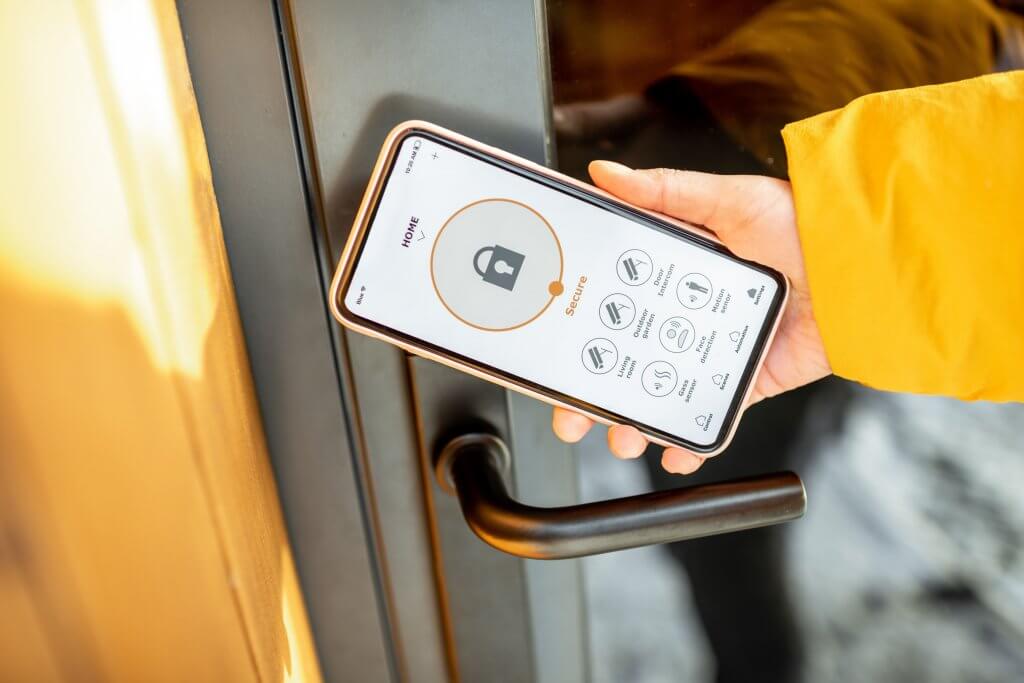
FAQs: Airbnb Smart Locks and Access Control Software
Whether you’re a first-time Airbnb host or an experienced owner with ten properties, remote access is one of those connected technologies that may seem easy on the surface but requires a bit of know-how and planning. Below are answers to some common questions to ensure your choice in smart access is one of the smartest investments you make.
Are Airbnb smart locks worth it?
Getting the most from your smart lock depends heavily upon the software that enables it. Without it, your smart lock is not much better than a traditional, mechanical lock.
Opt for a modern, cloud-based access solution, and you have the magical ability to control access remotely. That’s a game-changer for many vacation rental hosts who don’t live near their rental properties and even those who do.
With software that’s based in the cloud, you can create and revoke access codes from anywhere. It saves you countless hours running back and forth to your property and eliminates keys, key handoffs, lockouts, and any rekeying costs that come with lost keys.
Are there any disadvantages to smart locks?
There are a few. A smart lock is more expensive than a traditional lock. If you’re not particularly tech-savvy, you may need to hire a locksmith to install the lock, which also adds to the cost.
A smart lock also runs on batteries, which need some monitoring. Most smart locks on the market today have lights that usually activate weeks prior to the battery dying, so you know to change it. When paired with cloud-based software, you’ll see a central dashboard on your smartphone or laptop that shows the battery status for every lock on the platform.
Lastly, some worry that a smart lock is vulnerable to hackers. There is certainly the possibility that someone may try to steal your PIN by watching you enter it.
The other method is that a hacker may try to “sniff” or intercept the signal of a smart lock by capturing the network traffic using a packet sniffer (an application aimed at capturing network packets). This is rarely successful because nearly all smart locks contain a certain method of sequencing to reject a packet or a signal that has already been delivered.
If you’ve invested in software like RemoteLock to enable your smart lock, you gain an additional layer of data protection with SSL encryption and industry best practices at all points of interface.
Are smart locks safer than traditional locks?
When compared to physical keys, smart locks offer more peace of mind and simpler securing solutions than rekeying or replacing locks via the traditional approach. Generally, they are secured with the same standards as your personal banking software. With no keys to lose or fall into the wrong hands, many would argue that a smart lock is actually safer than a physical key.
If you’re using cloud-based software, you can track access history, meaning your dashboard provides a record of people coming and going on your property. That’s real-time visibility into exactly who is accessing your property and when.
Furthermore, the cloud features hardware redundancy and automatic software updates, effectively limiting the risk of unexpected service interruptions. The cloud also allows smart locks to continue to operate normally, even in the event of a local network disruption.
Which comes first: smart locks or access control software?
You could make arguments for both. Looking at your existing mechanical lock on the door and determining the latch type (either tubular or mortise) is a good place to start. Plus, you may have a preference for either deadbolt or latch, which you’ll find in many popular smart lock brands.
Lastly, aesthetics may be a driving factor in your decision as you want the hardware to be attractive or you may want to complement a certain look on the property.
However, given the significant efficiencies empowered through access control software, many experts may guide you to look at the software first. With universal access software, you have your choice from many popular smart lock brands instead of being locked into one proprietary lock brand.
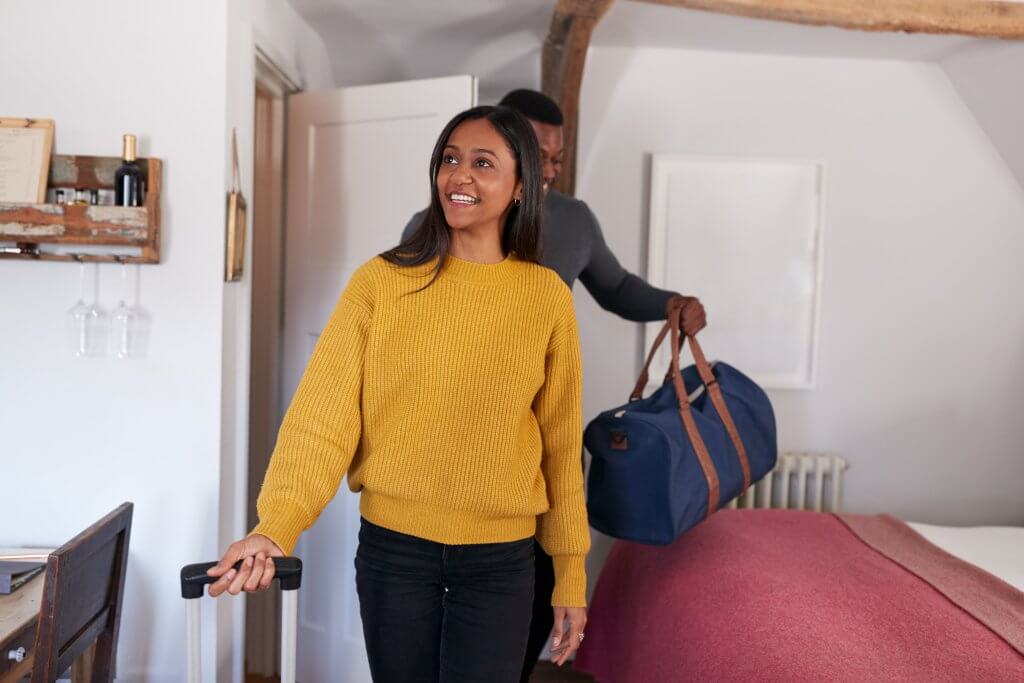
It’s Time to Ditch the Keys
For any vacation rental business owner, property safety is always a concern. Short-term rentals can have a high risk of trespassing, break-ins, and theft. With the constant flow of guests, cleaners, and hired help, anything can happen.
Vacation rental business owners typically like to automate their locking and security systems. Not only does it save them time from having to drive back and forth between properties to drop keys off, but it offers them peace of mind in knowing that their property is secure.
If you’re ready to drop the physical keys and switch to a more efficient access control solution, the switch is easier than you think.




